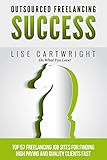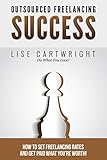Ever dream of being your own boss, setting your own hours, and working from anywhere? Freelancing offers that tantalizing freedom, but it’s also a competitive landscape. The secret weapon that sets successful freelancers apart? A powerful personal brand. This isn’t just about having a nice logo; it’s about crafting a compelling narrative that showcases your unique value, attracts the right clients, and ultimately, drives your freelancing success.
What is Personal Branding for Freelancers?
Personal branding for freelancers is the process of defining and promoting your unique value proposition to your target audience. It’s about showcasing your expertise, skills, and personality to establish yourself as a go-to expert in your field. Think of it as creating your own professional identity that resonates with potential clients. It’s the difference between being just another freelancer and being the freelancer clients seek out.
Why is Personal Branding Important for Freelancers?
In the crowded freelance marketplace, a strong personal brand helps you stand out. It allows you to:
- Attract Ideal Clients: A clearly defined brand attracts clients who align with your values and expertise, leading to more fulfilling and profitable collaborations.
- Command Higher Rates: When you position yourself as a specialist, you can justify charging premium rates for your services. Clients are willing to pay more for quality and expertise.
- Build Credibility and Trust: A consistent and authentic brand builds trust with potential clients, making them more likely to choose you over your competitors.
- Generate More Leads: A strong online presence and active networking efforts, fueled by your personal brand, can significantly increase your lead generation.
- Establish Long-Term Relationships: Building a personal brand fosters deeper connections with clients, leading to repeat business and referrals.
Building Your Freelance Personal Brand: A Step-by-Step Guide
Creating a winning personal brand doesn’t happen overnight. It requires strategic effort and consistent action. Here’s a roadmap to get you started:
1. Define Your Niche and Ideal Client:
Who are you trying to reach? What specific problems do you solve? Understanding your niche and ideal client is crucial for tailoring your brand message. As a nutritionist and meal prep coach, my ideal client might be busy professionals seeking healthy, convenient meal solutions.
2. Craft Your Brand Message:
Your brand message should clearly communicate your unique value proposition. What makes you different from other freelancers in your field? Highlight your skills, experience, and personality. My brand message might focus on simplifying healthy eating through personalized meal plans and coaching.
3. Develop Your Online Presence:
Your online presence is your digital storefront. A professional website, active social media profiles, and engaging content are essential. Showcase your work, share valuable insights, and connect with your target audience.
4. Network Strategically:
Networking is key to building relationships and expanding your reach. Attend industry events, join online communities, and connect with potential clients on platforms like LinkedIn.
5. Gather Testimonials and Social Proof:
Client testimonials and social proof build credibility and trust. Request feedback from satisfied clients and showcase their positive experiences on your website and social media.
Common Mistakes to Avoid
- Being Inconsistent: Inconsistency in your brand messaging and online presence can confuse potential clients and damage your credibility.
- Trying to Be Everything to Everyone: Niching down allows you to target your ideal clients more effectively. Trying to appeal to everyone dilutes your brand message.
- Neglecting Your Online Presence: In today’s digital world, a strong online presence is non-negotiable.
- Not Engaging With Your Audience: Building a personal brand is a two-way street. Engage with your audience, respond to comments, and build relationships.
 Personal Branding for Freelance Success
Personal Branding for Freelance Success
- Briggs, Laura (Author)
- English (Publication Language)
- Riccio-Ackerman, Giovanni Michael (Author)
- English (Publication Language)
- Berktold, Maximilian (Author)
- English (Publication Language)
- Cartwright, Lise (Author)
- English (Publication Language)
- Cartwright, Lise (Author)
- English (Publication Language)
- Cartwright, Lise (Author)
- English (Publication Language)
- Amazon Kindle Edition
- Cartwright, Lise (Author)
- OMER, SYED (Author)
- English (Publication Language)
- Kendall Leif (Author)
- English (Publication Language)
- Amazon Kindle Edition
- White, Paul Allen (Author)
The Power of Storytelling in Personal Branding
Storytelling is a powerful tool for connecting with your audience on an emotional level. Share your personal journey, challenges you’ve overcome, and the impact you’ve made on your clients. Authentic storytelling humanizes your brand and makes you more relatable. As a nutritionist, sharing my own struggles with healthy eating and how I overcame them can resonate with potential clients facing similar challenges.
Measuring the Impact of Your Personal Brand
Tracking your progress is essential for refining your branding strategy. Monitor your website traffic, social media engagement, and lead generation. Analyze which strategies are working and adjust your approach accordingly.
Conclusion
Building a strong personal brand is an investment in your freelance success. It takes time, effort, and consistent action, but the rewards are well worth it. By defining your unique value, crafting a compelling narrative, and building a strong online presence, you can attract ideal clients, command higher rates, and ultimately, achieve your freelancing goals. So, take the time to invest in your personal brand – it’s the key to unlocking your full potential in the freelance world. What are your thoughts on personal branding? Share your experiences and insights in the comments below!











